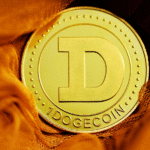
Utility tokens represent a dynamic segment within the blockchain ecosystem. These tokens provide users with access to a specific product or service, often facilitated by a decentralized platform. Unlike security tokens, which symbolize investment contracts and are subjected to stringent financial regulations, utility tokens ideally operate outside these frameworks. However, the lack of clarity in legal definitions across jurisdictions creates a challenging environment for stakeholders.
Utility Tokens Unveiled: Driving Value and Innovation in Blockchain Networks
Global Regulatory Perspectives on Utility Tokens
United States
The regulatory landscape for utility tokens in the United States remains complex and nuanced. The Securities and Exchange Commission (SEC) has not established a clear regulatory framework specifically for utility tokens, treating them on a case-by-case basis to determine whether they fall under the category of securities based on the criteria established in the Howey Test. This uncertainty prompts many companies in the crypto space to proceed with caution when launching utility tokens in the US market.

European Union
In contrast, the European Union has taken significant steps towards a more structured regulatory approach with the implementation of the Markets in Crypto-Assets Regulation (MiCA) in July 2023. MiCA aims to harmonize the regulatory framework for digital assets across EU member states, providing clear classifications and requirements for utility tokens. This regulation seeks to balance the promotion of technological and financial innovation with consumer protection and market integrity.
United Kingdom
The UK has also made strides in regulating utility tokens, incorporating them under the broader umbrella of digital assets regulated by the Financial Conduct Authority (FCA). Recent legislative developments have moved towards treating cryptocurrencies, including utility tokens, more like traditional financial instruments. This includes stricter regulations on crypto advertising and the sale of crypto derivatives, although stablecoins are receiving increased attention with plans to integrate them into the electronic money and payments legislation.
Asia-Pacific Region
The regulatory environment in the Asia-Pacific region varies dramatically. For instance, Singapore has introduced measures to protect individual traders by limiting credit access for crypto trading and banning incentives for trading. These regulations are part of the broader Payment Services Act, which encompasses a variety of rules designed to safeguard consumers and maintain market stability.

Hong Kong, meanwhile, categorizes utility tokens distinctly from security tokens, with the former not falling under the Securities and Futures Commission (SFC) jurisdiction, suggesting a more liberal regulatory approach compared to mainland China, which has completely outlawed cryptocurrency use.
In Japan, the regulatory framework continues to evolve, with the Financial Services Agency (FSA) actively engaging in discussions to potentially lift restrictions on foreign-issued stablecoins. The Japanese government also shows support for blockchain innovations, including investments in the metaverse and NFTs.
India presents a more cautious approach. Despite overturning a banking ban on cryptocurrencies, the regulatory stance is still stringent, with recent actions targeting compliance of offshore cryptocurrency exchanges under anti-money laundering laws.
Compliance Frameworks and Challenges
As the regulatory landscape for cryptocurrencies and utility tokens continues to evolve, compliance frameworks across the globe are undergoing significant transformations to keep pace with the rapid innovation and risks associated with digital assets. The challenges facing these frameworks are multifaceted, spanning from the integration of traditional financial regulations to addressing the unique characteristics of decentralized finance (DeFi).
In the United States, for example, the SEC’s continued governance through enforcement actions illustrates a reactive rather than proactive regulatory stance. This approach often leaves crypto firms navigating a complex and sometimes unclear regulatory environment. To mitigate these risks, companies are increasingly seeking expertise from traditional finance and legal sectors to ensure compliance with evolving regulations.
Europe, through its Markets in Crypto Assets (MiCA) regulation, provides a more structured framework. MiCA aims to harmonize crypto regulations across EU member states, establishing clear compliance mandates for crypto asset service providers. This uniform approach seeks to safeguard consumers and ensure market stability, setting a precedent for other regions.
In Asia, countries like Singapore are leading with stringent measures to protect individual investors. Singapore’s regulatory framework emphasizes rigorous KYC/AML procedures and has recently implemented rules limiting the use of credit for crypto trading and banning promotional activities in public spaces.
The challenges extend to addressing the specifics of DeFi and crypto derivatives, which have seen substantial growth. Regulatory sandboxes in various jurisdictions serve as test beds for new products and services, allowing for innovation while ensuring necessary safeguards are in place.
Lastly, the introduction of the travel rule, which requires crypto businesses to share information about the origins and destinations of transactions, presents a new layer of compliance complexity. This rule aims to enhance transparency and combat illicit activities but poses operational challenges, particularly around the privacy-oriented features of blockchain technology.
Overall, as digital assets continue to mature, the need for robust, clear, and adaptive compliance frameworks becomes increasingly crucial. These frameworks must balance the need for innovation with the requirements for security, transparency, and consumer protection, creating a stable environment for the growth of the crypto market.
Evolving Stance of Regulatory Bodies
Regulatory bodies worldwide are gradually adapting their stances to accommodate the nuances of utility tokens while addressing associated risks. This evolution is partly driven by the need to balance consumer protection with the promotion of technological advancements. For instance, Japan’s Payment Services Act and the amended Financial Instruments and Exchange Act provide a regulatory framework that recognizes both the utility and potential financial implications of crypto-assets.

The Future Path and Its Implications
As the global dialogue on crypto regulation progresses, the path forward for utility tokens will likely involve enhanced cooperation between international regulatory bodies to harmonize standards. This collaboration could lead to more predictable and favorable conditions for the development and adoption of blockchain technologies. For businesses and consumers in the blockchain space, staying informed and engaged with these regulatory evolutions will be key to navigating future challenges and opportunities.
The regulatory environment for utility tokens remains a complex and evolving area, characterized by a patchwork of international laws and standards. For stakeholders in the blockchain industry, understanding and anticipating these regulatory shifts is crucial to fostering innovation while remaining compliant. As this landscape continues to evolve, the proactive engagement of all parties with regulators will be essential in shaping a supportive framework for utility tokens.
Discover Blockchain Excellence with Kenson Investments
The team at Kenson Investments brings extensive experience across various disciplines, ensuring high standards of service and commitment. At Kenson, we prioritize legitimacy and transparency, dedicating ourselves to advancing the blockchain industry and supporting startups through digital asset portfolios. Our digital assets consulting, real world asset consultants, cryptocurrency investment consultant, and digital asset portfolio management services are designed to help you navigate the complex landscape of digital investments.
Join us in exploring the promising field of crypto asset portfolios and blockchain assets. Let Kenson lead the change in digital assets!














